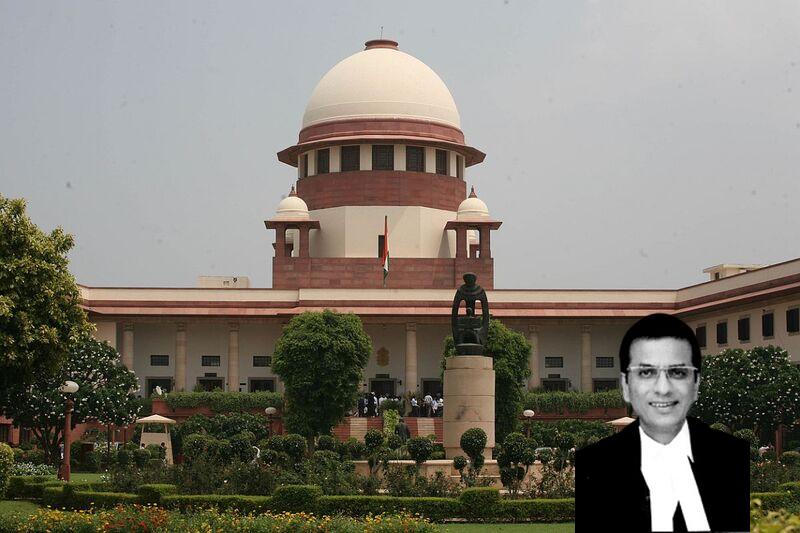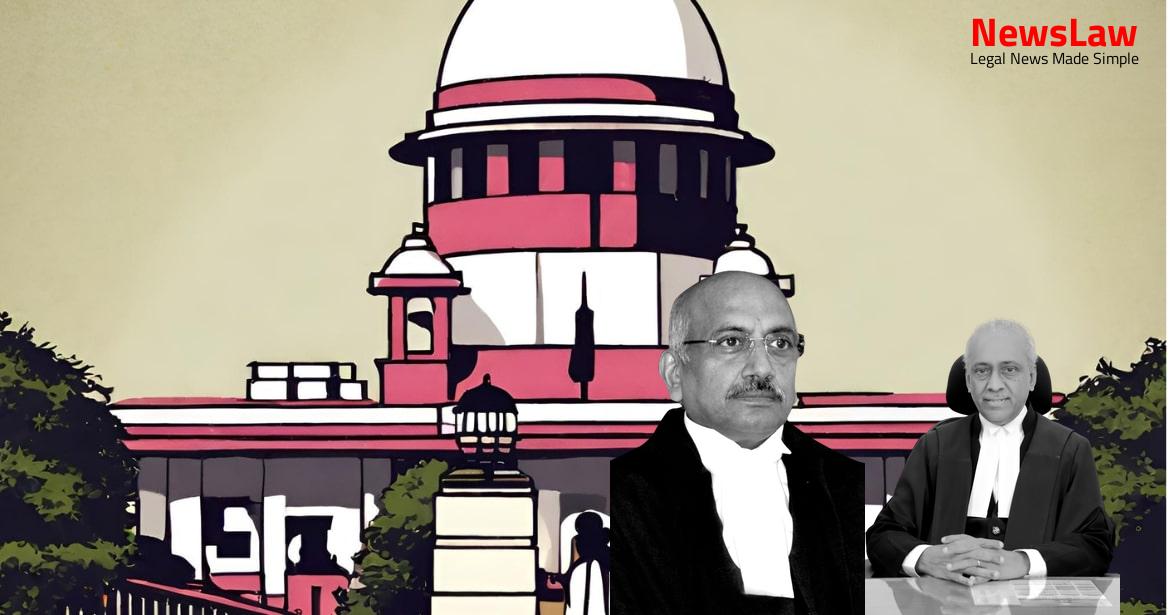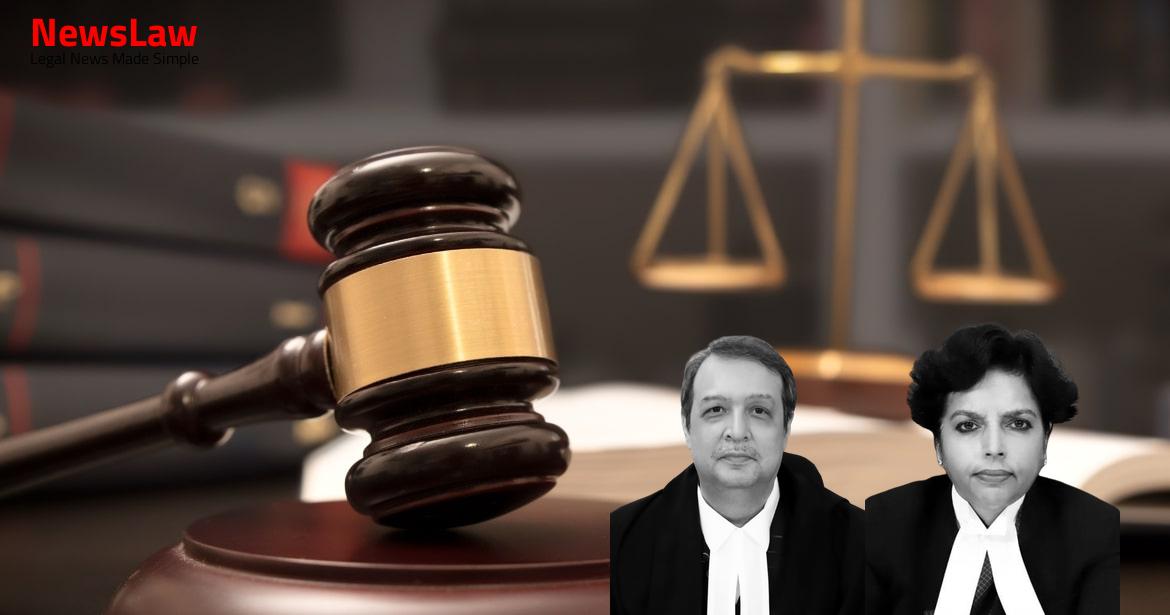This Appeal by accused No.4 in the complaint filed by the respondent herein under Section 138 read with Section 141 of the Negotiable Instruments Act, 1881 (for short ‘the NI Act’) is directed against the order dated 06.12.2019 in CRM-M No.52299 of 2019 passed by the High Court of Punjab and Haryana at Chandigarh. The High Court found that the contention in regard to the maintainability of the complaint against the appellant, owing to his retirement from the partnership firm prior to the issuance of the cheque in question, is a matter of SLP (Crl.) 12 of 2020 Page 3 of 21 evidence and ultimately, the appellant would have to lead evidence and prove that fact. Per Contra, learned counsel appearing for the respondent would submit that paragraphs 3 and 4 of the complaint would reveal that the averments thereunder are sufficient to satisfy the mandatory requirement in terms of Section 141 of the NI Act, qua the appellant as SLP (Crl.) 12 of 2020 Page 5 of 21 well.
That the accused No.1 is a partnership-firm with the name and style of M/s Tile Store, having its office at 5-654/B, Jyothis Complex, By-pass Road, Eranhipalam, Calicut-673006 (Kerala), while accused No.2 to 6 are the partners of the accused No.1. True that in paragraph 3 it is stated that accused No.1 is a partnership firm and accused Nos.2 to 6 are the partners of accused No.1 and they, being the partners, are responsible for the day-to-day contact and business of accused No.1. It reads thus:- “(1) If the person committing an offence under section 138 is a company, every person who, at the time the offence was committed, was in charge of, and was responsible to the company for the conduct SLP (Crl.) 12 of 2020 Page 8 of 21 of the business of the company, as well as the company, shall be deemed to be guilty of the offence and shall be liable to be proceeded against and punished accordingly: Provided that nothing contained in this sub-section shall render any person liable to punishment if he proves that the offence was committed without his knowledge, or that he had exercised all due diligence to prevent the commission of such offence: [Provided further that where a person is nominated as a Director of a company by virtue of his holding any office or employment in the Central Government or State Government or a financial corporation owned or controlled by the Central Government or the State Government, as the case may be, he shall not be liable for prosecution under this Chapter. Relying on paragraph 47(b) of the said decision learned counsel appearing for the respondent would also submit that the complainant is supposed to know only generally as to who were in charge of the affairs of the company or firm, as the case maybe and he relied on mainly the following recitals thereunder: “47…… a.)…… b.) The complainant is supposed to know only generally as to who were in charge of the affairs of the company or firm, as the case may be.
In Gunmala Sales Private Limited (supra), this Court after an exhaustive review of its earlier decisions on Section 141 of the NI Act, summarized its conclusion as under:- “(a) Once in a complaint filed under Section 138 read with Section 141 of the NI Act the basic averment is made that the Director was in charge of and responsible for the conduct of the business of the company at the relevant time when the offence was committed, the Magistrate can issue process against such Director; (b)…… The principles of law and the dictum as laid in Gunmala Sales Private Limited (supra), in our opinion, still holds the field and reflects the correct position of law.” 11. Mani’s case (supra) in paragraph 47 (a) it was held that the primary responsibility of the complainant is to make SLP (Crl.) 12 of 2020 Page 13 of 21 specific averments in the complaint so as to make the accused vicariously liable. It is not averred anywhere in the complaint that the appellant was in charge of the conduct of the business of the company at the relevant time when the offence was committed.
In paragraph 5 of the complaint, it was alleged that accused No.1 through accused No.2 had purchased the goods from the complainant on credit basis through proper sales invoices and, in paragraph 6 it was alleged that for liquidation of legal liability outstanding accused Nos. 005074 dated 21.8.2015 amounting to Rs.27,46,737/- drawn upon Punjab National Bank, Ernhipalam (Kozhikode), in favour of the complainant from the account of accused No.1. Akhil Sibal that except reproduction of the statutory requirements the complainant has not specified or elaborated the role of the appellant in the day-to-day affairs of the Company. Every person who is sought to be roped in by virtue of sub-section 1 of Section 141 NI Act must be a person who at the time the offence was committed was in charge of and was SLP (Crl.) Merely because somebody is managing the affairs of the company, per se, he does not become in charge of the conduct of the business of the company or the person responsible for the company for the conduct of the business of the company. A bare perusal of Section 141(1) of the NI Act, would reveal that only that person who, at the time the offence was committed, was in charge and was responsible to the company for the conduct of the business of the company, as well as the company alone shall be deemed to be guilty of the offence and shall be liable to be proceeded against and punished. Since the averments in the complaint are insufficient to attract the provisions under Section 141(1) of the NI Act, to create vicarious liability upon the appellant, he is entitled to succeed in this appeal. There will be no order as to costs. (C.T.



